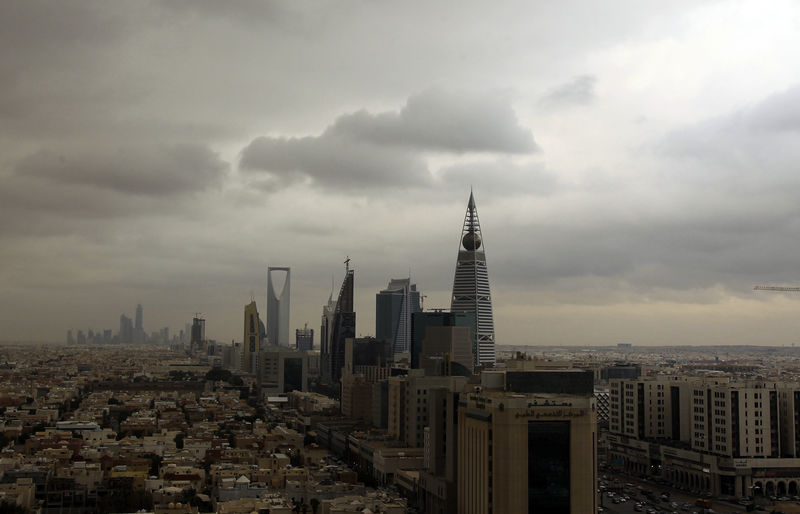By Nafisa Eltahir
DUBAI (Reuters) - Middle Eastern funds plan to increase their investments in the United Arab Emirates and decrease their investments in Saudi Arabia, while keeping their exposure to other countries in the region at current levels, according to a Reuters poll.
Seven of the 10 fund managers polled said they would increase their investments in the United Arab Emirates, building on a trend over recent months.
Dubai was one of the worst-performing markets globally last year, but has rebounded with its benchmark index (DFMGI) up almost 15% so far. On Monday, it had its best day in almost a year, rising 1.2%, buoyed by rising real estate shares.
In neighbouring Abu Dhabi, the index (ADI) is up 8.77% this year.
In the UAE, "stable oil prices, a wide range of structural reforms and government-led spending initiatives," as well as underlying earnings growth should lead to accelerating economic growth into next year, said Mohamed Eljamal, head of public markets at Abu Dhabi's Waha Capital.
However, economists polled by Reuters have revised their growth expectations down by 0.8 percentage points to 2.2% for the UAE through to 2021.
"We believe the macro picture is not as rosy as stock prices look," said Talal Samhouri, head of asset management at Amwal LLC in Doha.
"The recent upward trend in UAE stocks can be attributed to look-back effect, where multiples are viewed on a trailing basis and not forward looking, which poses downward risks when coming periods' earnings hit the wire," he said.
Sixty percent of fund mangers said they would decrease their investments in Saudi Arabia.
On Monday, the kingdom's stock index (TASI) suffered its biggest single-day loss in a month amid poor earnings reports.
Economists polled by Reuters expected Saudi GDP to grow by 1.7% this year.
"Going forward, two of the biggest components of the Saudi index will face major headwinds," said Eljamal, with the petrochemical sector facing soft demand, and the banking sector finding lower profitability due to falling interest rates.
In May, MSCI said it would include Saudi Arabia in its closely watched emerging markets index next year, a move that a Saudi official said could help attract $40 billion (32.9 billion pounds) in foreign funds.
"We have held the view since early in the year that the Saudi large caps have rallied much beyond their fundamental worth," said Vrajesh Bhandari, senior portfolio manager at Al Mal Capital in Dubai, adding that further growth "is difficult to justify".
"We believe there will be a final upward march to the Saudi market in the coming few months driven by the foreign flows," said Samhouri, "then a period of turbulence and watching from the sidelines as valuations improve, given the slower growth of earnings compared to the rise in stock prices over the past few months".

Most of the fund managers polled said they were keeping their allocations in Qatar, Egypt, Turkey, and Kuwait equal.